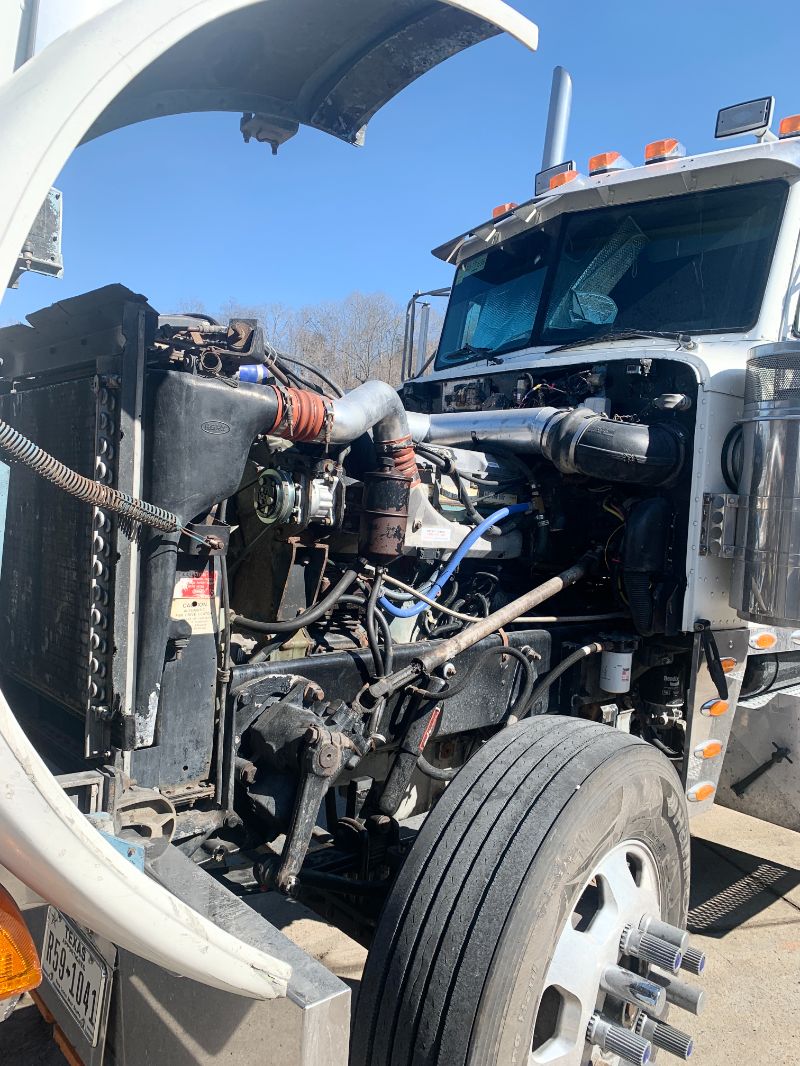The exhaust system of a truck plays a pivotal role in its overall performance and environmental impact. At Truck Zone in Edmonton, Alberta, understanding the nuances of exhaust systems is paramount for truck owners and operators, particularly as regulations around emissions grow stricter and the demand for optimal performance increases.
This guide delves into the significance of the exhaust system, how a faulty system can affect a truck's performance and emissions, and why maintaining this component is crucial for the health of both the truck and the environment.
Understanding the Exhaust System
The exhaust system's primary function is to safely guide combustion by-products away from the engine, thus allowing the engine to breathe and function efficiently. It's composed of several key components including the exhaust manifold, after-treatment components, muffler, and exhaust pipes. Together, these components not only reduce the noise produced by the engine but also clean up the emissions before they are released into the atmosphere.
The diesel particulate filter (DPF), exhaust gas recirculation (EGR) system, and selective catalytic reduction (SCR) catalysts are key components in reducing emissions from diesel engines. Each plays a crucial role in minimizing the environmental impact of diesel vehicles by targeting specific pollutants.
Diesel Particulate Filter (DPF)
The DPF is essential for trapping soot and particulate matter that diesel engines emit. Over time, these particles accumulate in the filter. The DPF then uses a regeneration process, either active or passive, to burn off the accumulated particulate matter, turning it into less harmful carbon dioxide and water vapor. A clogged or malfunctioning DPF can cause increased emissions, reduced engine performance, and potentially costly repairs if not addressed promptly.
Exhaust Gas Recirculation (EGR) System
The EGR system plays a vital role in reducing nitrogen oxide (NOx) emissions, a significant contributor to air pollution. It recirculates a portion of the engine's exhaust gas back into the intake air. This process lowers combustion temperatures, which in turn reduces the amount of NOx produced during combustion. A faulty EGR system can lead to increased NOx emissions, decreased fuel efficiency, and engine performance issues, highlighting the importance of its maintenance and proper function.
Selective Catalytic Reduction (SCR) Catalysts
SCR catalysts further reduce NOx emissions by introducing a urea-based solution, commonly known as Diesel Exhaust Fluid (DEF), into the exhaust stream. This chemical reaction converts NOx into nitrogen and water vapor, significantly less harmful substances to the environment. The effectiveness of the SCR system is critical for meeting stringent emission standards. Issues with the SCR catalysts or the DEF injection system can lead to higher NOx levels, possible engine derate scenarios, and non-compliance with environmental regulations.
In summary, the DPF, EGR system, and SCR catalysts are instrumental in ensuring diesel engines operate more cleanly and efficiently. Maintaining these systems is crucial for the longevity and legality of operating diesel vehicles, emphasizing the importance of regular checks and servicing to prevent malfunction and ensure optimal performance.
The Impact of a Faulty Exhaust System
A faulty exhaust system can have wide-reaching implications, affecting everything from fuel efficiency to the health of the truck's engine and its occupants.
Reduced Performance and Fuel Efficiency
Leaks in the exhaust system, particularly before your after-treatment components, can result in a loss of backpressure, which is essential for the engine's optimal performance. This can lead to a noticeable decrease in power and acceleration. Furthermore, a compromised exhaust system can cause the engine to work harder than necessary, reducing fuel efficiency.
Increased Emissions
A damaged or poorly functioning exhaust system directly contributes to increased emissions. This not only harms the environment but also puts the truck at risk of not complying with emissions regulations, leading to potential legal and financial repercussions for the owner.
Risk to Driver and Passenger Health
Exhaust leaks, especially in the cabin, pose a significant health risk to occupants, exposing them to potentially deadly gases like carbon monoxide. Ensuring the exhaust system is in good working order is critical to prevent such dangerous situations.
Maintaining Your Exhaust System
Regular inspections and maintenance are essential to ensure the exhaust system functions correctly. This includes checking for rust or holes in the exhaust pipes and components, ensuring your after-treatment components are functioning efficiently, and replacing any worn or damaged parts immediately.
When to Seek Professional Help
If you notice louder than usual exhaust sounds, a decrease in fuel efficiency, or a smell of emissions inside the cabin, it's crucial to seek professional assistance. Truck Zone in Edmonton is equipped to diagnose and repair exhaust system issues, ensuring your truck operates safely and efficiently.
Final Thoughts
The exhaust system is an integral part of your truck, influencing performance, fuel efficiency, and emissions. A faulty exhaust system not only impacts the truck's operational capabilities but also its environmental footprint and the health and safety of its occupants.
Recognizing the signs of exhaust system issues and addressing them promptly is essential. At Truck Zone in Edmonton, Alberta, truck owners have a reliable partner in maintaining their vehicles' exhaust systems, ensuring they meet performance and environmental standards.
By prioritizing exhaust system maintenance, truck operators can enjoy improved performance, comply with emissions regulations, and contribute to a cleaner environment, underlining the critical role this system plays in the overall health of your truck.




.jpg)


